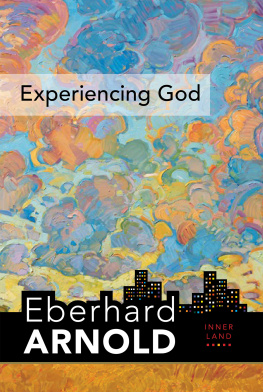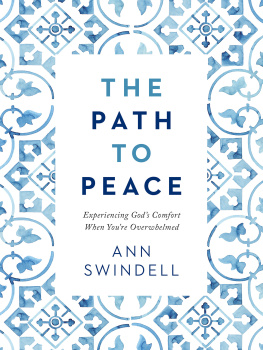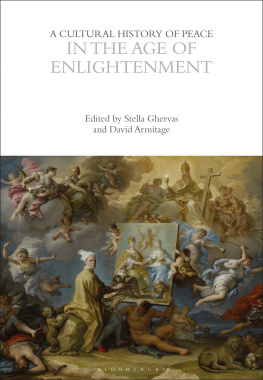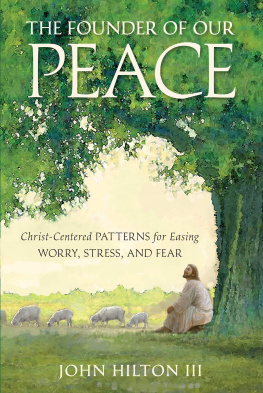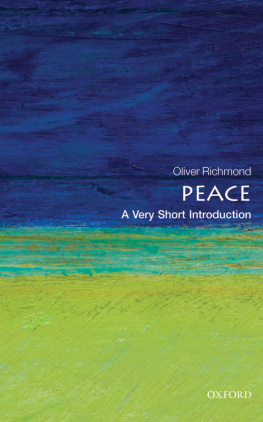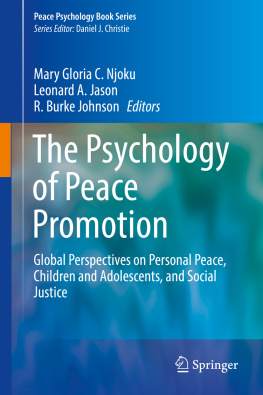
Experiencing God
Inner Land
A Guide into the Heart of the Gospel
The Inner Life The Inner Life The Heart Soul and Spirit |
The Conscience The Conscience and Its Witness The Conscience and Its Restoration |
Experiencing God The Experience of God The Peace of God |
Fire and Spirit Light and Fire The Holy Spirit |
The Living Word |
Volume 3
Experiencing God
Eberhard Arnold

PLOUGH PUBLISHING HOUSE
Published by Plough Publishing House
Walden, New York, USA
Robertsbridge, East Sussex, UK
Elsmore, NSW, Australia
Plough is the publishing house of the Bruderhof, an international community of families and singles seeking to follow Jesus together. Members of the Bruderhof are committed to a way of radical discipleship in the spirit of the Sermon on the Mount. Inspired by the first church in Jerusalem (Acts 2 and 4), they renounce private property and share everything in common in a life of nonviolence, justice, and service to neighbors near and far. To learn more about the Bruderhofs faith, history, and daily life, see Bruderhof.com.
Copyright 1975, 2020 by Plough Publishing House
All rights reserved.
PRINT ISBN: 978-0-87486-296-6
EBOOK ISBN: 978-0-87486-297-3
Translated from the 1936 edition of Innen Land: Ein Wegweiser in die Seele der Bibel und in den Kampf um die Wirklichkeit (Buchverlag des Almbruderhof e. V.). This edition is based on the 1975 English edition translated by Winifred Hildel and Miriam Potts.
Cover image: Radiant Clouds (oil on canvas) by Erin Hanson, copyright Erin Hanson. Used with permission.
Dedicated to my faithful
wife, Emmy Arnold
Contents
When anyone is united to Christ, there is a new world; the old order has gone, and a new order has already begun.
2 Corinthians 5:17 (NEB)
Preface
Born to an academic family in the Prussian city of Knigsberg, Eberhard Arnold (18831935) received a doctorate in philosophy and became a sought-after writer and speaker in Germany. Yet like thousands of other young Europeans in the turbulent years following World War I, he and his wife, Emmy, were disillusioned by the failure of the establishment especially the churches to provide answers to the problems facing society.
In 1920, out of a desire to put into practice the teachings of Jesus, the Arnolds turned their backs on the privileges of middle-class life in Berlin and moved to the village of Sannerz with their five young children. There, with a handful of others, they started an intentional community on the basis of the Sermon on the Mount, drawing inspiration from the early Christians and the sixteenth-century Anabaptists. The community, which supported itself by agriculture and publishing, attracted thousands of visitors and eventually grew into the international movement known as the Bruderhof.
Eberhard Arnolds magnum opus, Inner Land absorbed his energies off and on for most of his adult life. Begun in the months before World War I, the first version of the book was published in 1914 as a patriotic pamphlet for German soldiers titled War: A Call to Inwardness. The first version to carry the title Inner Land appeared after the war in 1918; Arnold had extensively revised the text in light of his embrace of Christian pacifism. In 1932 Arnold began a new edit, reflecting the influence of religious socialism and his immersion in the writings of the sixteenth-century Radical Reformation, as well as his experiences living in the Sannerz community. Arnold continued to rework the book during the following three years, as he and the community became targets of increasing harassment as opponents of Nazism. The final text, on which this translation is based, was published in 1936. Arnold had died one year earlier as the result of a failed surgery.
This final version of Inner Land was not explicitly critical of the Nazi regime. Instead, it attacked the spirits that fed German societys support for Nazism: racism and bigotry, nationalistic fervor, hatred of political enemies, a desire for vengeance, and greed. At the same time, Arnold was not afraid to critique the evils of Bolshevism.
The chapter Light and Fire, in particular, was a deliberate public statement at a decisive moment in Germanys history. Eberhard Arnold sent Hitler a copy on November 9, 1933. A week later the Gestapo raided the community and ransacked the authors study. After the raid, Eberhard Arnold had two Bruderhof members pack the already printed signatures of Inner Land in watertight metal boxes and bury them at night on the hill behind the community for safekeeping. They later dug up Inner Land and smuggled it out of the country, publishing it in Lichtenstein after Eberhard Arnolds death. Emmy Arnold later fulfilled her husbands wish and added marginal Bible references. (Footnotes are added by the editors.)
At first glance, the focus of Inner Land seems to be the cultivation of the spiritual life. This would be misleading. Eberhard Arnold writes:
These are times of distress; they do not allow us to retreat just because we are willfully blind to the overwhelming urgency of the tasks that press upon human society. We cannot look for inner detachment in an inner and outer isolation. The only thing that could justify withdrawing into the inner self to escape todays confusing, hectic whirl would be that fruitfulness is enriched by it. It is a question of gaining within, through unity with the eternal powers, that strength of character which is ready to be tested in the stream of the world.
Inner Land, then, calls us not to passivity, but to action. It invites us to discover the abundance of a life lived for God. It opens our eyes to the possibilities of that inner land of the invisible where our spirit can find the roots of its strength. Only there, says Eberhard Arnold, will we find the clarity of vision we need to win the daily battle that is life.
The Editors
The Experience of God
Historical events must lead us to faith
The more shaking the historical events of a time period, the more necessary it is to recognize what spiritual power determines their course. Outward events as violent as those of our day call for an insight into this ultimate will and its aim. But the more agitated the times, the more temporary matters push to the fore. At such times of tension, a tangle of issues seems to prevent any clarity about the ultimate answer. Mounting pressure leads to emergency measures that seem imperative. Conditioned to the times, they are not able to turn the tide of need and distress. One attempt follows another, misery increases, and nothing can overcome it; people go under in the day-to-day struggle and lose all hope of a change.
Some think we have to give first place to patriotic ideas and the historic task laid on the nation. The longed-for freedom of the national community appears imperative at the moment, demanding that everything else be subjected and sacrificed to this. Others, however, believe in a historical development to raise to power in every nation all those oppressed and exploited by competition and private enterprise; for a time they are to be given unlimited power. In comparison with both of these, the champions of liberty and freedom for the individual (with the consequent competition) retreat into the background. No state protection preserves them from their approaching insignificance. What falls almost completely by the wayside in the struggle for quickly-won power is this: in the end, a classless society based on justice and peace shall unite all extremes.
Next page
